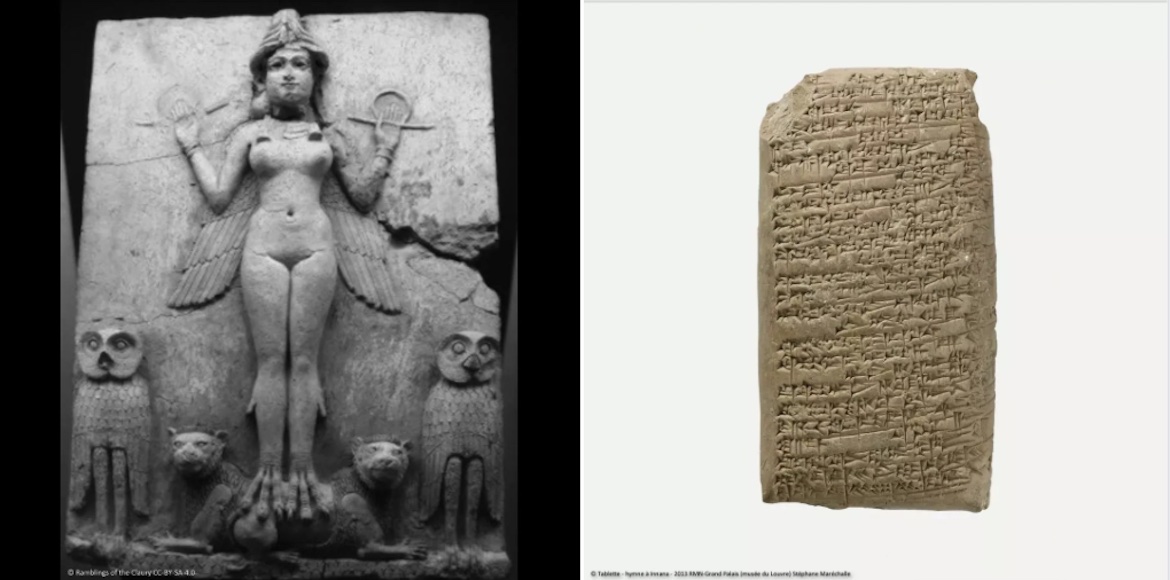

Her father, King Sargon of Akkad, who showed great confidence in her, sends her to the city of Ur, one of the most important Mesopotamian cities, to make her the high priestess of Nanna, the female moon goddess, protector of the Akkad dynasty, goddess of war and love. Enheduanna was the first to hold this title and held it for about forty years. Her name, taken with her new role, may mean "Noble ornament of the god".
Enheduanna is famous in ancient Mesopotamia for having been the author of religious hymns that remained in use during the centuries that followed. Essentially dedicated to the goddess Nanna, these poems have been found on more than a hundred cuneiform tablets.
She is also credited with a suite of 42 poems, known as Sumerian Temple Hymns, written on 37 tablets found in Ur and Nippur, mostly dating from the Third Dynasty of Ur. In them, Enheduanna does not only sing to praise the gods, she also recounts small pieces of her life and speaks in the first person, which is very rare at the time. "Although marked by devotion and prayer, these poems are of a more personal style and reflect the inner thoughts, hopes and despairs of their author" (histoireparlesfemmes.com).
Enheduanna undoubtedly left a mark on people's minds for after her death, even though some of her hymns and poems are probably apocryphal (meaning that their authenticity has not been established), they will be copied and transcribed for centuries on numerous tablets. Furthermore, it is possible that she was deified after her death.
One of Enheduanna’s tablets is on display in the Louvre Museum today. You can find it in room 228, first floor of the Richelieu wing.
@ Adama Toulon - Julie Henry Poutrel
© Photo 1: Ramblings of the Claurv - CC-BY SA 4.0
© Photo 2: Tablette - hymne à Innana - 2013 RMN-Grand Palais (musée du Louvre) Stéphane Maréchalle

